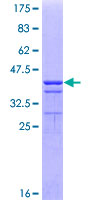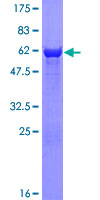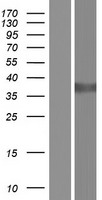order histories, retained contact details for faster checkout, review submissions, and special promotions.
Forgot password?
order histories, retained contact details for faster checkout, review submissions, and special promotions.
Locations
Orders Processing,
Shipping & Receiving,
Warehouse
2 Shaker Rd Suites
B001/B101
Shirley, MA 01464
Production Lab
Floor 6, Suite 620
20700 44th Avenue W
Lynnwood, WA 98036
Telephone Numbers
Tel: +1 (206) 374-1102
Fax: +1 (206) 577-4565
Contact Us
Additional Contact Details
order histories, retained contact details for faster checkout, review submissions, and special promotions.
Forgot password?
order histories, retained contact details for faster checkout, review submissions, and special promotions.
DDH / AKR1C1
aldo-keto reductase family 1, member C1
DDH / AKR1C1 is a member of the aldo/keto reductase superfamily, which consists of more than 40 known enzymes and proteins. These enzymes catalyze the conversion of aldehydes and ketones to their corresponding alcohols by utilizing NADH and/or NADPH as cofactors. The enzymes display overlapping but distinct substrate specificity. This enzyme catalyzes the reaction of progesterone to the inactive form 20-alpha-hydroxy-progesterone. This gene shares high sequence identity with three other gene members and is clustered with those three genes at chromosome 10p15-p14.
| Gene Name: | aldo-keto reductase family 1, member C1 |
| Synonyms: | AKR1C1, 2-ALPHA-HSD, 20-alpha-HSD, Aldo-keto reductase C, Bile acid binding protein, Chlordecone reductase homolog, DDH1, Dihydrodiol dehydrogenase 2, DD1, DDH, Dihydrodiol dehydrogenase 1/2, DD1/DD2, Dihydrodiol dehydrogenase 1, H-37, HAKRC, HBAB, Indanol dehydrogenase, MBAB |
| Target Sequences: | NM_001353 NP_001344.2 Q04828 |
Publications (2)





If you do not find the reagent or information you require, please contact Customer.Support@LSBio.com to inquire about additional products in development.









